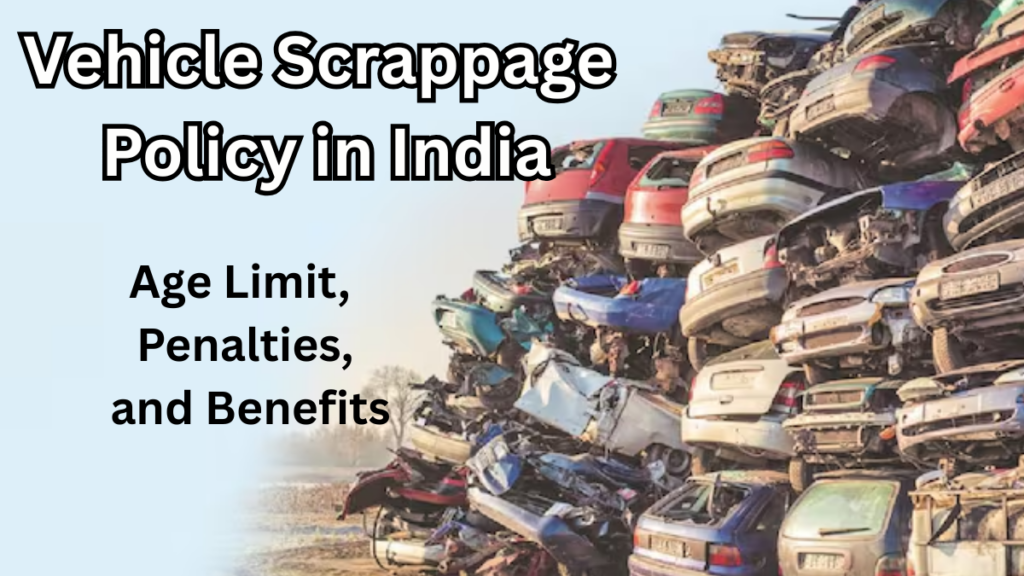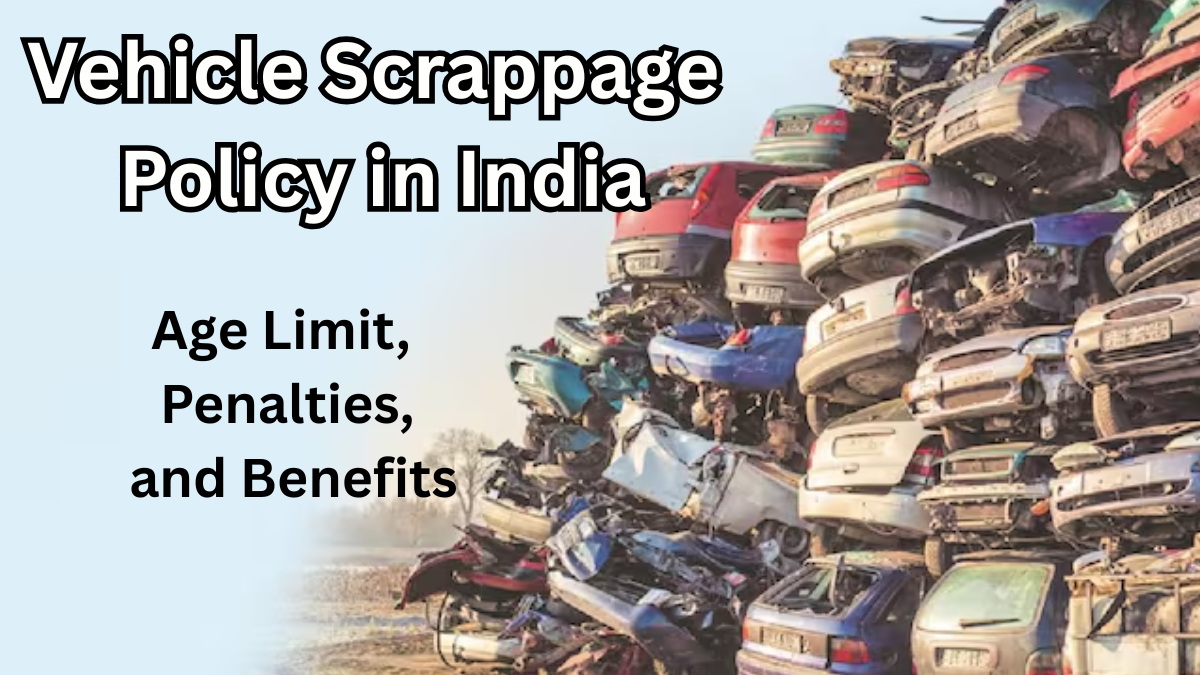India is taking a big leap toward cleaner mobility with the launch of the Vehicle Scrappage Policy India 2025. If you’re driving an old vehicle or planning to invest in a used one, this policy could directly impact your decisions. It aims to eliminate outdated and polluting vehicles from Indian roads and replace them with newer, safer, and more fuel-efficient models.
Let’s explore everything you need to know about the policy—from age limits and penalties to the car deregistration process and benefits.

What is the Vehicle Scrappage Policy India 2025?
The vehicle scrappage policy India 2025 is a government-backed initiative designed to reduce air pollution and boost the auto industry. It mandates fitness tests for older vehicles and encourages voluntary scrapping of unfit vehicles through incentives.
This policy sets clear guidelines for the RTO rule for old cars and aims to modernize India’s aging vehicle fleet.
Age Limit for Vehicles
The policy defines a maximum age for private and commercial vehicles before they must be tested for roadworthiness.
| Vehicle Type | Maximum Age Limit |
|---|---|
| Private Cars | 20 Years |
| Commercial Vehicles | 15 Years |
-
Vehicles older than these limits must undergo a fitness test.
-
If they fail, they become ineligible for re-registration.
-
In such cases, the car deregistration process is automatically triggered by the RTO.
Penalties for Keeping Old Vehicles
Keeping or using an old vehicle that doesn’t meet fitness standards can attract heavy penalties. Here’s what owners of outdated vehicles might face:
-
Fines up to ₹15,000 for private vehicles.
-
Fines up to ₹50,000 for commercial vehicles.
-
No RC renewal for vehicles beyond age limits without fitness certification.
-
Mandatory deregistration under the RTO rule for old cars.
Benefits of the Scrappage Policy
Scrapping an old vehicle isn’t just a regulatory formality—it comes with financial and environmental benefits.
| Benefit Type | What You Receive |
|---|---|
| Monetary Incentive | 4–6% of the ex-showroom price of a new vehicle |
| Road Tax Rebate | Up to 25% for private vehicles; 15% for commercial |
| Registration Fee Waiver | Full waiver when registering a new vehicle |
| Manufacturer Discount | Up to 5% discount from OEMs on new vehicle purchase |
| Cleaner Environment | Reduction in pollution and improved road safety |
These benefits make compliance with the vehicle scrappage policy India both rewarding and forward-looking.
Car Deregistration Process in India
If your vehicle is declared unfit after testing or reaches the end of its permitted age, here’s how the car deregistration process works:
-
Visit a government-authorized vehicle scrapping center.
-
Submit your car along with required documents like the RC and ID proof.
-
The center evaluates and dismantles the vehicle.
-
You receive a Certificate of Deposit and Scrappage Certificate.
-
Submit these to your RTO to deregister the vehicle.
-
Use these certificates to claim benefits on your next purchase.
Important Points to Remember
-
Fitness tests must be done only at certified Automated Testing Stations.
-
You have two chances to clear the fitness test.
-
If your vehicle fails both times, deregistration becomes mandatory.
-
Vintage and special-use vehicles may be exempt from scrapping norms.
FAQs
1. Is the vehicle scrappage policy India 2025 mandatory for all vehicles?
Not exactly. The policy makes it mandatory for older vehicles to pass fitness tests. If they fail, scrapping becomes mandatory. Otherwise, voluntary scrapping is incentivized.
2. Can I still use my 20-year-old car if it passes the fitness test?
Yes, a 20-year-old car can continue to be used if it clears the official fitness test. However, if it fails, the RTO rule for old cars requires its deregistration.
3. What happens if my vehicle fails the fitness test?
You are allowed to retake the test once. If your vehicle fails both attempts, it must be scrapped, and the car deregistration process will begin as per RTO norms.
4. What documents are required to scrap my car?
You’ll need your Registration Certificate (RC), a valid ID proof, your car’s insurance papers, and Pollution Under Control (PUC) certificate.
Final Thoughts
The Vehicle Scrappage Policy India 2025 isn’t just a step toward cleaner air—it’s a roadmap for safer roads and a healthier future. While parting with your old vehicle may be emotional, this policy offers a smart financial and environmental incentive to switch to something better.
If your vehicle is approaching its age limit, it’s a good time to consider your next steps—be it fitness testing or voluntary scrapping. Either way, this change is meant to benefit both you and the planet.
Click here to learn more
